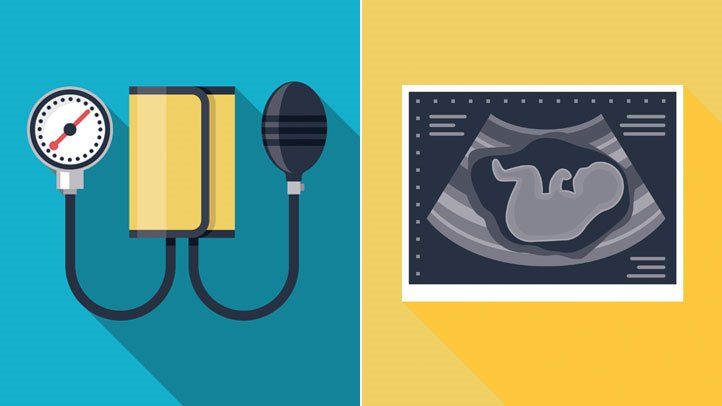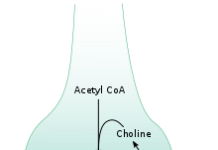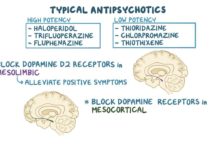High blood pressure, also called hypertension, is a common disease that occurs when the pressure in your arteries is higher than it should be.
Blood pressure is the force of blood pushing against the walls of the arteries as the heart pumps blood throughout the body. If left untreated, high blood pressure can lead to health problems, such as heart disease, stroke, kidney failure, vision loss, and more. (1)
Causes and Risk Factors of High Blood Pressure
The following can increase your chances of developing high blood pressure.
Older age The risk of high blood pressure increases as you age.
According to the U.S. National Health and Nutrition Examination Survey (NHANES), 70 percent of adults age 65 or older have hypertension. (2)
The risk of prehypertension and high blood pressure has been increasing in recent years in young people, too, including children and teens, possibly because of the rise of obesity in these populations. (3)
Race High blood pressure is more common in Black American adults than in white or Hispanic American adults.
Family history Having a family history of high blood pressure increases your risk, as the condition tends to run in families.
Being overweight The more you weigh, the more blood you need to supply oxygen and nutrients to your tissues. As the volume of blood circulating through your blood vessels increases, so does the pressure on your artery walls. Obesity — especially abdominal obesity — also increases stiffness in arteries, which raises blood pressure. (4)
Lack of physical activity People who are inactive tend to have a higher heart rate and higher blood pressure than those who are physically active. Not exercising also increases the risk of being overweight.
Tobacco use When you smoke or chew tobacco, your blood pressure rises temporarily. Moreover, chemicals in tobacco can damage the lining of your artery walls, which can cause your arteries to narrow, increasing your blood pressure. Being exposed to secondhand smoke may also increase your blood pressure.
Dietary choices What you choose to eat (and not to eat) can increase your risk for hypertension, including in the following ways:
- Too much sodium can cause your body to retain fluid, which increases blood pressure.
- Since potassium helps balance the amount of sodium in your cells, not getting enough of it can raise blood pressure.
- While studies are limited, it's thought that vitamin D may affect an enzyme produced by your kidneys that in turns affects your blood pressure, so having too little D may be harmful.
Alcohol consumption Drinking more than two drinks a day for men and more than one drink a day for women may raise your blood pressure.
Stress Being under intense stress can lead to a temporary increase in blood pressure. Moreover, if you try to cope with stress by overeating, using tobacco, or drinking alcohol, all these can contribute to your high blood pressure.
Chronic conditions Having kidney disease, sleep apnea, or diabetes can affect blood pressure.
Pregnancy Being pregnant can cause an increase in blood pressure. (5)
Birth control Women who take birth control pills are at greater risk of developing high blood pressure. It’s more likely to occur when women are overweight, have had high blood pressure during a previous pregnancy, have a family history of blood pressure, smoke, or have mild kidney disease. (6)
Causes of Secondary Hypertension
When high blood pressure arises suddenly due to an identifiable condition, it’s called secondary hypertension.
Some conditions and drugs can lead to secondary hypertension, including the following:
- Kidney problems
- Adrenal gland tumors
- Thyroid problems
- Blood vessel defects
- Obstructive sleep apnea
- Alcohol abuse or chronic alcohol use
- Illegal drugs, including cocaine and amphetamines (5)
Drugs That Can Cause High Blood Pressure
Medication that you take to control other health conditions, such as arthritis, epilepsy, or allergies, can cause your blood pressure to rise.
Such medication can also interfere with the ability of anti-hypertension drugs to keep blood pressure down.
Below are some of the drugs that may negatively affect blood pressure.
Pain medication Common pain and anti-inflammatory medicines can lead to the retention of water, which can create problems with the kidneys and higher blood pressure.
Examples include:
- Nonsteroidal anti-inflammatory drugs (NSAIDs), such as ibuprofen (Motrin, Advil) and naproxen (Aleve, Naprosyn)
- Indomethacin (Indocin)
- Acetaminophen (Tylenol)
- Piroxicam (Feldene)
Antidepressants These drugs work by changing the body’s response to chemicals that affect mood. This can also lead to an increase in blood pressure.
Examples of antidepressants that may elevate blood pressure include:
- Fluoxetine (Prozac, Sarafem)
- Venlafaxine (Effexor XR)
- Monoamine oxidase inhibitors
- Tricyclic antidepressants
Decongestants These medicines, which include common cough, cold, and allergy drugs, are known to raise blood pressure and to alter the effectiveness of high blood pressure medication.
Examples include pseudoephedrine (Sudafed, Contac) and phenylephrine (Sudafed PE).
Hormones Birth control pills can also affect blood pressure. Women who take birth control pills usually experience a small rise in systolic and diastolic blood pressure (the top and bottom numbers that are determined when you get your blood pressure checked).
Hormone therapy used to relieve symptoms of menopause can also cause a small rise in systolic blood pressure.
If you know you have high blood pressure, but are considering hormone therapy, talk with your doctor about the risks and benefits of undergoing hormone therapy, as well as the best ways to control your blood pressure.
Additionally, some recreational and illegal drugs, such as cocaine, ecstasy (MDMA), and amphetamines, are also known to increase blood pressure. (6,7)
How Is High Blood Pressure Diagnosed?
Blood pressure checks are part of routine doctor visits. To check your blood pressure, your healthcare provider will place an inflatable cuff around your arm and use a pressure-measuring gauge.
Before giving a diagnosis of high blood pressure, your physician will likely take two or three readings during separate appointments. This is because blood pressure varies throughout the day, and some people may be anxious before or during a doctor visit, causing elevated blood pressure.
If your blood pressure is consistently 130/80 millimeters of mercury (mmHg) or higher, you will most likely be diagnosed with high blood pressure.
In 2017, the American Heart Association (AHA) updated its definition of high blood pressure from the previous 140/90 mmHg or higher. The guidelines recommend earlier intervention to prevent further increases in blood pressure that could lead to health problems. (8)
If you have high blood pressure, your physician will take a full medical history and conduct a physical exam. Other routine tests may be given, including a blood test, urine test, cholesterol test, and an electrocardiogram or echocardiogram to check for signs of heart disease. (9)
Treatment and Medication Options for High Blood Pressure
Most people who have high blood pressure will likely need lifelong treatment to help ward off or delay serious health problems brought on by the condition.
Options to treat high blood pressure may include eating a healthy diet with less salt, taking medication, and incorporating additional lifestyle changes. These include exercise, limiting alcohol intake, smoking cessation, and managing stress. (3)
Medication Options
There are a variety of drugs available to treat hypertension. Some work by removing extra fluid and salt from your body to lower blood pressure, others slow down your heartbeat or relax and widen blood vessels.
For many people with high blood pressure, taking more than one medication in low doses is more effective than taking larger doses of one single drug.
Depending on your body, medical history, and severity of hypertension, your doctor may recommend one or more of the following drugs:
- Thiazide diuretics
- Beta-blockers
- Angiotensin-converting enzyme inhibitors (ACE inhibitors)
- Angiotensin II receptor blockers (ARBs)
- Calcium channel blockers
- Renin inhibitors
- Alpha-blockers
- Alpha-beta-blockers
- Central-acting agents
- Vasodilators
- Aldosterone antagonists (3,9)
Learn More About How to Treat High Blood Pressure
Using Diet to Treat High Blood Pressure
People with high blood pressure should watch their sodium intake and stick to a healthy diet. Your doctor might recommend the DASH (Dietary Approaches to Stop Hypertension) diet, which is composed of foods that are low in sodium and cholesterol and rich in protein, fiber, and other nutrients. (10)
Learn More About How Diet Can Help You Prevent or Manage Hypertension
Prevention of High Blood Pressure
The best way to prevent high blood pressure is to lead a healthy lifestyle. This includes:
- Eating a healthy diet
- Maintaining a healthy weight
- Exercising regularly
- Not smoking
- Limiting alcohol intake
- Reducing stress
Research and Statistics: How Many People Have High Blood Pressure?
Hypertension is a very common condition, in both developing countries and industrialized nations.
According to the AHA, more than 100 million Americans have high blood pressure. That equates to nearly half of all adults in the United States. (12)
High blood pressure is more common in men than in women, the Centers for Disease Control and Prevention (CDC) reports. About 47 percent of men in the United States have high blood pressure, compared with 43 percent of women.
Only one in four Americans with hypertension have the condition under control. (13)
Related Conditions and Causes of High Blood Pressure
There are certain conditions that may make a person more likely to develop high blood pressure. These include pregnancy and post-traumatic stress disorder (PTSD).
High Blood Pressure During Pregnancy
Women can develop high blood pressure during pregnancy. When this happens after 20 weeks of pregnancy, it is known as gestational hypertension. This is a form of secondary hypertension caused by pregnancy, and it generally goes away after delivery. (6)


Number of Pregnant Women With High Blood Pressure Rises More Than Thirteenfold Since 1970, Study Finds
If not treated, high blood pressure during pregnancy can lead to a number of complications for both the mother and the baby. Hypertension can affect a mother's kidneys and increase her risk of future heart disease, kidney disease, and stroke.
It can also increase the risk of preterm delivery, low birth weight, preeclampsia, placental abruption, cesarean delivery, and HELLP syndrome (a complication that involves hemolysis, elevated liver enzymes, and low platelet count). (16,17)
Learn More About High Blood Pressure During Pregnancy
PTSD and High Blood Pressure
A growing body of research has linked post-traumatic stress disorder (PTSD) to high blood pressure.
Researchers aren’t sure about the mechanism underlying the relationship between PTSD and high blood pressure, but it may have something to do with higher levels of inflammation in patients with PTSD, which may increase blood pressure.
Since PTSD has a much higher incidence in veterans, experts say screening for high blood pressure should be routine not only in active soldiers who are at risk, but also for those who are no longer active and receive care from Veterans Affairs hospitals. (18)
Learn More About the Link Between PTSD and Hypertension
Resources We Love
Favorite Organizations for Essential High Blood Pressure Information
American Heart Association (AHA)
The AHA is the nation’s oldest and largest nonprofit organization dedicated to fighting heart disease, as well as its major risk factors, including high blood pressure. The AHA funds lifesaving research and advocates for people affected by all heart-related issues. You can also find diet and lifestyle tips for getting your blood pressure under control.
Million Hearts
Million Hearts is a national initiative led by the CDC and the Centers for Medicare and Medicaid Services. Its goal is to prevent 1 million heart attacks and strokes within five years. It focuses on small steps people can take to reduce risk factors for these heart events, including blood pressure control.
Favorite Online Support Networks
Measure Up/Pressure Down
Take comfort in the fact that you're not alone in the struggle to lower your blood pressure. Read personal stories and connect with others who share their journey in controlling hypertension.
AHA’s Support Network
This online support group from the American Heart Association allows you to connect with others going through an array of heart issues, including hypertension. Ask questions, share your story, and get peer support from others going through similar experiences to take control of their heart health.
Favorite Resources for Diet Advice
Low Salt Kitchen
Cutting sodium in your diet is an essential lifestyle change to getting your blood pressure under control. Check out the delicious low-salt recipes on this blog — they'll satisfy anyone looking to adhere to a low-sodium diet.
Favorite Apps
Blood Pressure Monitor
This app allows users to track their vital signs, as well as record details like medications, weight, and other health data. The app then generates charts that explain how aspects of your health and treatment plan interact. Blood Pressure Monitor is free on iOS.
Blood Pressure Companion
This app, available on iOS and Android, allows you to enter your blood pressure measurements and evaluate your numbers graphically over time. Easily share your readings with your doctor or family members and set reminders so you never forget to measure your BP and never miss a doctor’s appointment.
Favorite Website for High Blood Pressure Products
Consumer Reports
This well-known independent nonprofit organization rounds up and reviews the best home blood pressure monitors to help you keep track of your numbers and get them under control.
Editorial Sources and Fact-Checking
- The Facts About High Blood Pressure. American Heart Association. November 30, 2017.
- Older Adults and Hypertension: Beyond the 2017 Guideline for Prevention, Detection, Evaluation, and Management of High Blood Pressure. American College of Cardiology. February 26, 2020.
- High Blood Pressure. National Heart, Lung, and Blood Institute. May 8, 2020.
- Know Your Risk Factors for High Blood Pressure. American Heart Association. December 31, 2017.
- High Blood Pressure (Hypertension) Symptoms and Causes. Mayo Clinic. May 12, 2018.
- High Blood Pressure and Women. American Heart Association. October 31, 2016.
- Medications and Supplements That Can Raise Your Blood Pressure. Mayo Clinic. April 2, 2019.
- High Blood Pressure Redefined for First Time in 14 years: 130 Is the New High. American Heart Association. November 13, 2017.
- High Blood Pressure (Hypertension) Diagnosis and Treatment. Mayo Clinic. May 12, 2018.
- DASH Eating Plan. National Heart, Lung, and Blood Institute.
- Health Threats From High Blood Pressure. American Heart Association. October 31, 2016.
- More Than 100 Million Americans Have High Blood Pressure, AHA Says. American Heart Association. January 31, 2018.
- Facts About Hypertension. Centers for Disease Control and Prevention. September 8, 2020.
- High Blood Pressure in Children. American Heart Association. October 31, 2016.
- High Blood Pressure and African Americans. American Heart Association. October 31, 2016.
- Preeclampsia and High Blood Pressure During Pregnancy. American College of Obstetricians and Gynecologists. March 2020.
- Preeclampsia Symptoms and Causes. Mayo Clinic. March 19, 2020.
- Associations of Initial Injury Severity and Posttraumatic Stress Disorder Diagnoses With Long-Term Hypertension Risk After Combat Injury. Hypertension. May 2018.













































